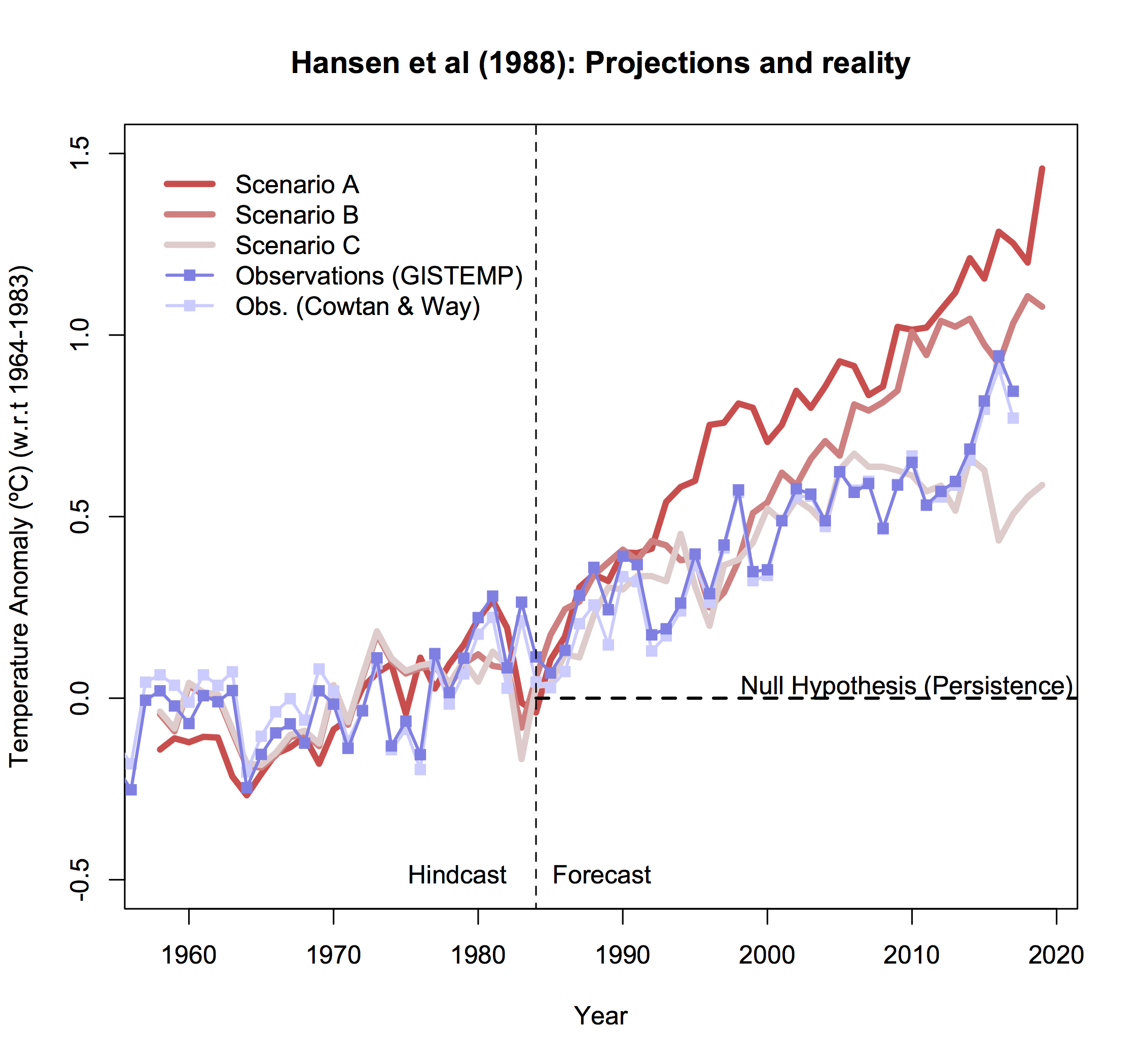 Via RS, some considerations of language from UnSciAm. I'm doubtful that twatting around with language is going to help at all; substance is more important. But really the article is doomed from quite early on, where Our Author tells us that "The partisan divide largely stems from conservatives’ perception that climate change solutions will involve big government controlling people’s choices and imposing sacrifices". Asserting that the divide comes largely from one side is just foolish (you could if you're wildly biased assert that all the problems come from one side; that at least wouldn't be internally contradictory); asserting that the problem is only perception is more foolishness. In fact that latter problem is just sloppy writing (in an article about language: arf arf), because OA segues into Repubs hostility being "largely attributable to a conflict between ideological values and often discussed solutions", which is to say to substance, not perception. Continuing,
Via RS, some considerations of language from UnSciAm. I'm doubtful that twatting around with language is going to help at all; substance is more important. But really the article is doomed from quite early on, where Our Author tells us that "The partisan divide largely stems from conservatives’ perception that climate change solutions will involve big government controlling people’s choices and imposing sacrifices". Asserting that the divide comes largely from one side is just foolish (you could if you're wildly biased assert that all the problems come from one side; that at least wouldn't be internally contradictory); asserting that the problem is only perception is more foolishness. In fact that latter problem is just sloppy writing (in an article about language: arf arf), because OA segues into Repubs hostility being "largely attributable to a conflict between ideological values and often discussed solutions", which is to say to substance, not perception. Continuing,The language we use for climate solutions can exacerbate the cultural divide. Terms such as “regulate,” “restrict,” “cut,” “control” and “tax” are unpopular, especially among conservatives. Perhaps people would be more likely to support solutions described with words such as “innovation,” “entrepreneurship,” “ingenuity,” “market-based” and “competing in the global clean energy race.”
But it doesn't seem to ever occur to OA that if you want the Repubs support, rather than just shuffling words to describe things as "market-based", if would be a great idea to actually propose ideas that genuinely are market based. Like a carbon tax.
Refs
* What Do Donors Want? Heterogeneity by Party and Policy Domain
* The left has no theory of the behavior of the government?
* The moral and intellectual bankruptcy of the Republican Party?
* Tell Me Why I Shouldn't Have Talked to Tucker - by Bryan Caplan
* Timmy on the NHS: So, Here’s The Actual Problem




